Playing on after 2 decades of cancer care
With the support of his health care team and nurse navigator, musician Newel Briggs’ life is in tune after prostate cancer.
Newel Briggs, from Portland, Oregon, continues his vibrant life after a prostate cancer diagnosis.
Twenty years ago, musician Newel Briggs from Portland, Oregon, had a head cold and was waiting to see his doctor when he saw a chart on the wall about the importance of prostate cancer screenings.
“I thought, you know, I’m turning 50. I should probably take that test,” said Briggs. He and his doctor moved ahead with a blood test. That test showed elevated levels of prostate-specific antigen, or PSA, which can be a sign of prostate cancer. After doing a physical check and a biopsy, Briggs was told he had prostate cancer.
Fortunately, Kaiser Permanente’s team-based approach to cancer care and variety of support programs are designed to guide members and their families through the physical and emotional challenges of a cancer diagnosis. For Briggs and his family, there was also Bobbi Provance, a nurse navigator who specializes in prostate cancer, on their care team.
Briggs is a semi-retired musician who has played professionally with legendary artists. He’s also an educator who has worked as a music teacher, career adviser, and case manager for at-risk youth.
His diagnosis was stunning news to get during an already-difficult time for Briggs and his family. Only months before, both his mother-in-law and father-in-law had died.
Navigating uncertainty and building relationships
Nurse navigators play an important role in oncology patients’ care teams. They collaborate with doctors to get lab tests and imaging appointments scheduled quickly, walk members through treatment plans, and serve as a single point of contact for questions.

Bobbi Provance, Briggs’ nurse navigator, continues to provide important support during his ongoing care for managing prostate cancer.
“It’s about building relationships and walking that journey with members,” said Provance. “This is a tough time in their lives — and we are there with them the whole time, from diagnosis all the way to survivorship.”
After his initial diagnosis, Briggs and his doctors discussed treatment options. He ultimately decided on 8 weeks of radiation therapy instead of having his prostate surgically removed.
During this time, the Briggs family also gained emotional support through Kaiser Permanente. Three of Briggs’ daughters, who were in high school at the time and still grieving the loss of 2 grandparents, attended art therapy sessions.
Kaiser Permanente offers several services for members with prostate cancer, including personal counseling for members and their families, monthly support group meetings, support groups for caregivers, and peer mentorships.
The whole family attended several therapy sessions together.
She’s been a godsend. She’s been a great asset and a friend helping me with this whole journey. Newel Briggs, Kaiser Permanente member
Playing on and managing cancer
Today, Briggs enjoys spending time with his grandchildren and looks forward to 2 more coming later this year. He still plays a few professional gigs. And he continues to share his love of music with his Oregon community. He plays banjo, mandolin, and dobro while singing folk songs he learned from his grandma and telling stories about growing up in the segregated South.
All the while, he continues to manage his prostate cancer. For the last decade, Provance has been his nurse navigator, always available for answering questions; assessing symptoms; scheduling regular hormone therapy injections, PSA tests, and follow-up appointments; reviewing PSA and testosterone results; helping with disability paperwork; and taking a holistic approach with patient care.
“She’s been a godsend,” said Briggs. “She’s been a great asset and a friend helping me with this whole journey.”
Learn more about cancer care at Kaiser Permanente in the Northwest.
-
Social Share
- Share Playing On After 2 Decades of Cancer Care on Pinterest
- Share Playing On After 2 Decades of Cancer Care on LinkedIn
- Share Playing On After 2 Decades of Cancer Care on Twitter
- Share Playing On After 2 Decades of Cancer Care on Facebook
- Print Playing On After 2 Decades of Cancer Care
- Email Playing On After 2 Decades of Cancer Care

February 27, 2025
‘The heart attack that saved my life’
A sudden heart attack led Mark Twichel to seek care at Kaiser Permanente …

February 26, 2025
Colon cancer: Do you need to be screened?
If you’re age 45 or older, getting checked regularly for colorectal cancer …

February 18, 2025
I just need a chance
Billy Cardosi spent his life putting his family and job first. Then a heart-rela …

February 14, 2025
A fulfilling life on the other side of ovarian cancer
As a wife and a mother, Autumn Gray was determined to beat cancer to be …

February 4, 2025
What is therapy, anyway?
At Kaiser Permanente, our care is personalized for each patient's mental …

January 24, 2025
Is one drink a day OK? Here’s what to consider
NPR
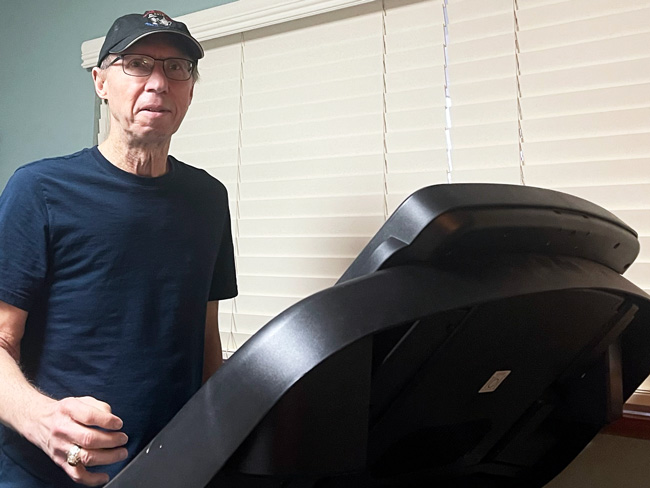
January 15, 2025
After surgery, home was where his heart was
Virtual cardiac rehabilitation offers Mike Erskine a convenient, safe way …

December 26, 2024
How telehealth can make life easier for people with cancer
Virtual care connects cancer patients like Rob Tufel to a wide range of …

November 26, 2024
How to reduce your risk of stroke
A Kaiser Permanente doctor and researcher shares the simple changes you …

November 22, 2024
Breast cancer survivor encourages early testing
Tasha Champion shares how early testing by her oncologist at Kaiser Permanente …

November 18, 2024
The power of early detection and proactive men’s health
A father's determination to stay healthy for his 3 children led him to …
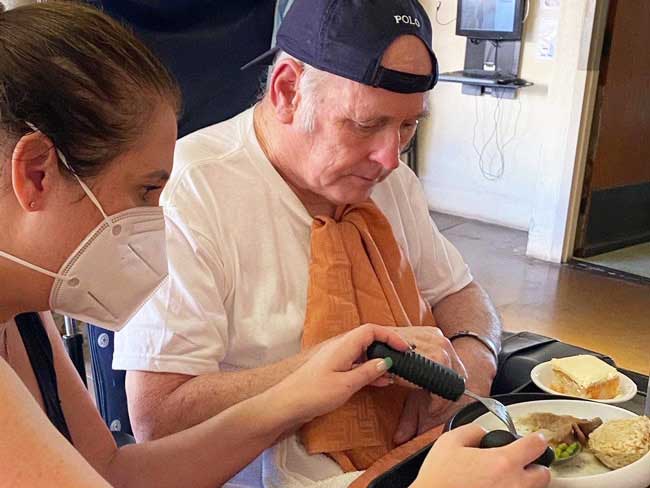
November 13, 2024
Self-care for caregivers matters: Here’s why
A sharp increase in rates of adult caregiving is taking a mental and physical …
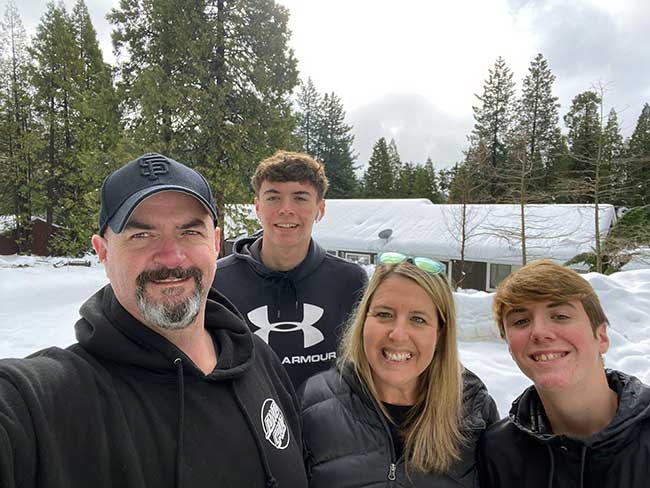
November 12, 2024
Surviving lung cancer as a nonsmoker
As a lifelong nonsmoker, Mariann Stephens was shocked to learn she had …

October 29, 2024
That’s not tennis elbow
A Kaiser Permanente physician thought he pinched a nerve during a tennis …
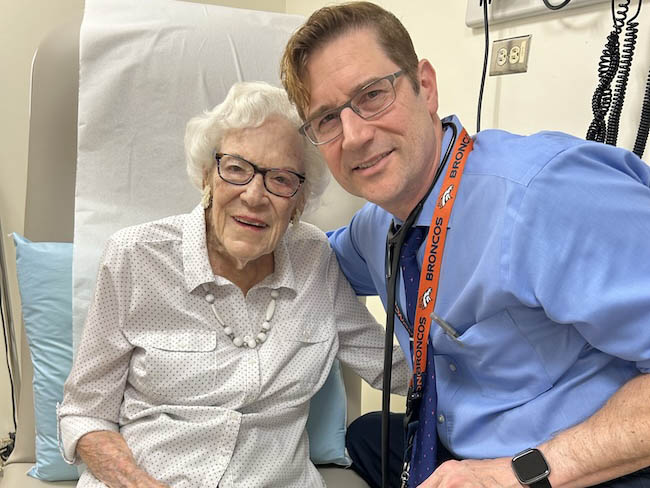
October 15, 2024
107-year-old member credits Kaiser Permanente for longevity
Bettye Garrett’s personal doctor says her healthy perspective on life’s …
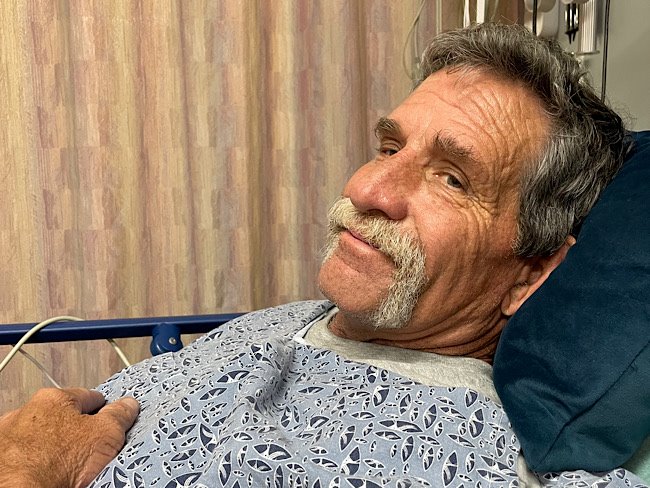
October 8, 2024
It started with a bad feeling
In August 2023, John Lynn collapsed at work. For the next year, he fought …

October 4, 2024
Teacher learns about herself and how to live with anxiety
A lifelong educator seeks behavioral health care to manage repetitive worries, …

October 1, 2024
From depression to connection: Older adult finds her way
After a long period of loneliness and isolation, Roberta Maguire gets the …

September 20, 2024
Ovarian cancer journey confirmed nursing student's calling
Miriam Gutierrez was diagnosed with late-stage ovarian cancer at age 31. …

September 18, 2024
More than 100 ‘Top Docs’ recognized in Washington state
Kaiser Permanente celebrates doctors and nurse practitioners recognized …

September 17, 2024
A Latina’s voice in mental health is impactful with her clients
Connecting through a shared heritage gives one therapist a unique perspective …

September 17, 2024
Groundbreaking at new medical offices in Pueblo
The new Pueblo North Medical Offices will replace the existing facility …
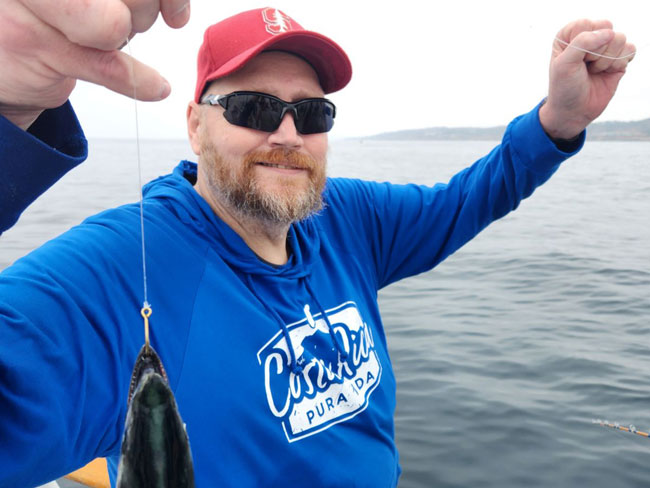
September 6, 2024
Navigating a world turned upside down after heart failure
After a life-threatening series of heart attacks at age 57, Bunnell Fockler …

August 29, 2024
After Stage 4 ovarian cancer, she’s still going strong
Donna Budway received prompt surgery followed by chemotherapy. She credits …
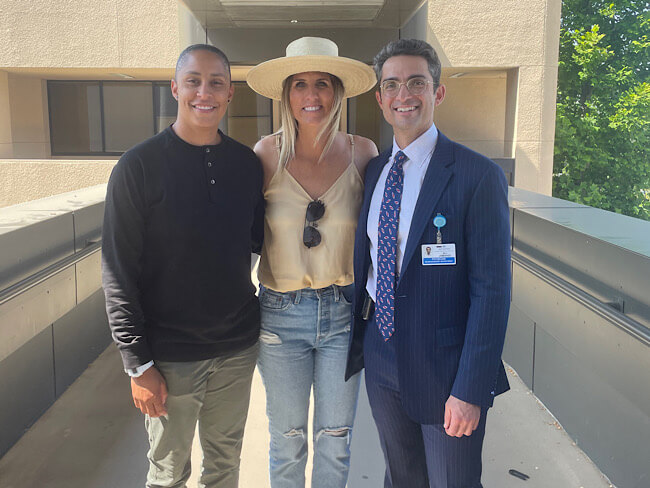
August 29, 2024
Neurosurgery and a deep, enduring doctor-patient relationship
A basketball coach’s remarkable story of undergoing brain tumor surgery …
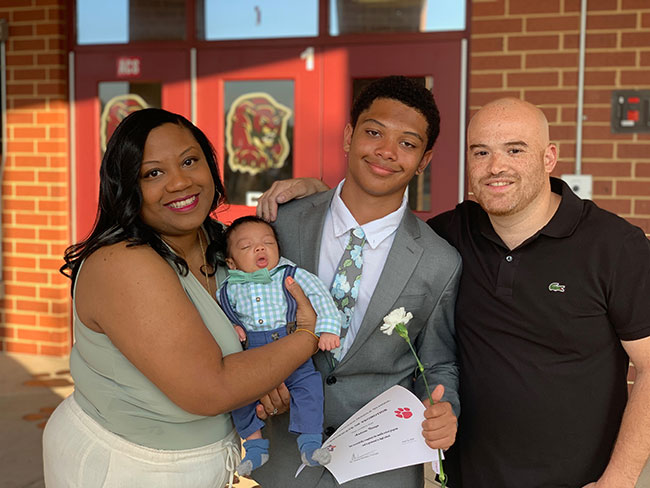
August 28, 2024
Making breastfeeding work: A second-time mom’s journey
Support from a dedicated care team helps Tiffany Anonye breastfeed her …
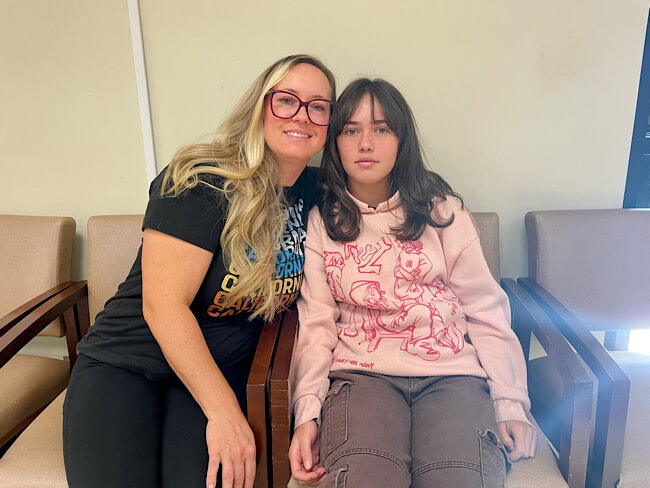
August 27, 2024
From sore throats to ice cream floats
A mother and daughter share a special bond after undergoing tonsillectomies …
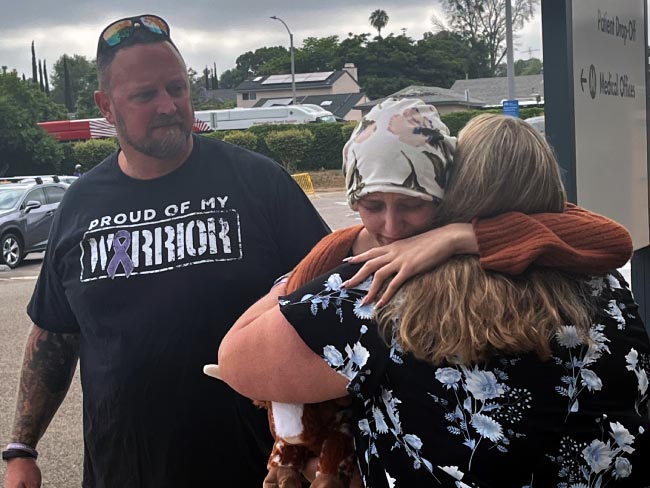
August 26, 2024
Katie's ride: Motorcycle rally a surprise for patient
Kaiser Permanente in San Diego helped plan a special send-off for Katie …

August 15, 2024
Back home one day after heart surgery
Ed Dalmasso needed an aortic valve replacement. His care team provided …

August 6, 2024
For a father with prostate cancer, knowledge is power
Harold Newman had advanced prostate cancer. Genetic testing helped expand …
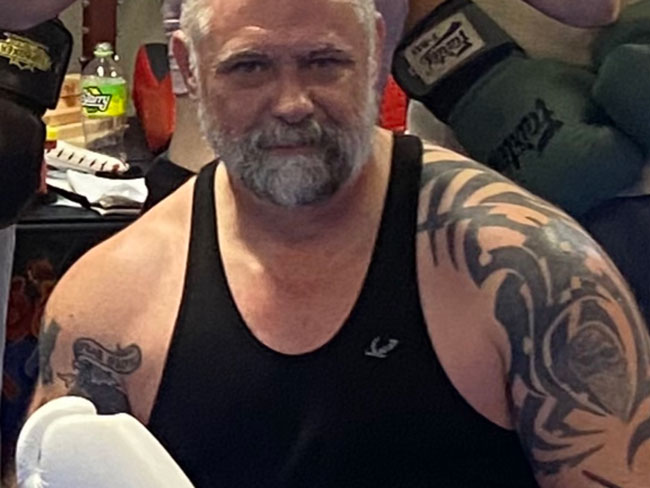
August 1, 2024
Early prostate cancer detection helps one patient fight back
After a successful treatment, Luke Klein is giving back as a mentor who …

August 1, 2024
Kaiser Permanente tops Colorado ‘Top Doctors’ list
5280 Magazine named 332 Kaiser Permanente physicians to its annual Top …

July 10, 2024
We help members lower their risk of heart attacks and strokes
A Southern California program, powered by our connected care model, is …

June 25, 2024
Prompt postpartum care saves a baby’s life
When a newborn was diagnosed with meningitis, a life-threatening infection …
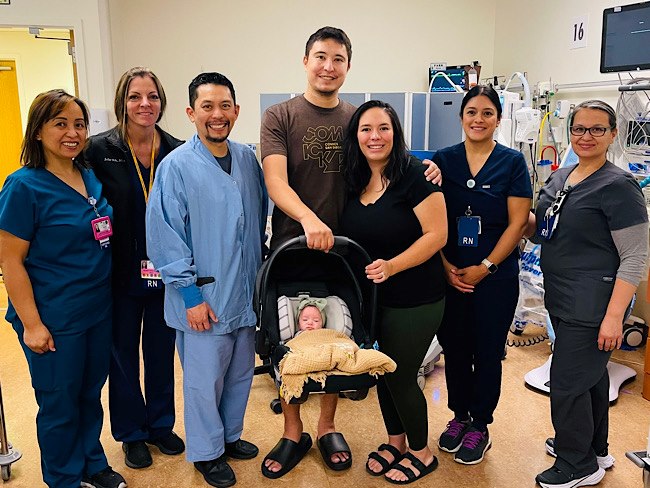
June 17, 2024
That’s a lot of babies!
Delivering multiple babies is difficult, but Kaiser Permanente care teams …

June 13, 2024
Conquered 2 cancers while climbing mountains
Chris Hogan faced kidney cancer and prostate cancer at the same time. He …

May 31, 2024
Stage 4 lung cancer: A story of hope
A young father is enjoying “bonus time” with his kids thanks to new targeted …

May 21, 2024
Surviving stage 4 lung cancer with immunotherapy treatment
Patients like Carol Pitman are living longer thanks to advances in lung …

May 10, 2024
Self-care is key for new parents
Feeling emotional or overwhelmed after a new baby’s arrival? You’re not …
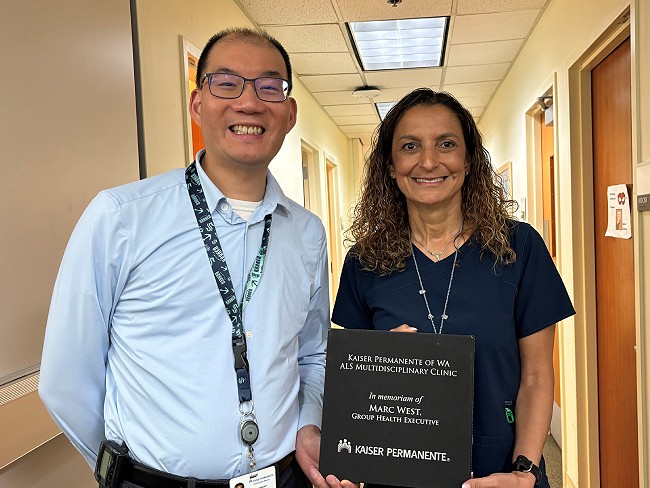
May 1, 2024
Tacoma ALS clinic recognized for high-quality care
Patients with amyotrophic lateral sclerosis, also called Lou Gehrig’s disease, …

April 17, 2024
5 common health conditions men don’t like to talk about
Some of the most common conditions affecting men carry a social stigma …

April 10, 2024
For a new mom, talking about her worries helped her heal
One in 5 people experience depression, anxiety, or other mental health …

April 9, 2024
Denver Fire Department annual blood work screenings triple
It’s easy to put off recommended health screenings, and sometimes even …

April 8, 2024
Reducing inequity with fruits and vegetables
Black Americans experience worse health outcomes compared to other populations. …

April 1, 2024
Lynch syndrome: Managing the risk of hereditary colon cancer
Lynch syndrome is a gene mutation that increases colon cancer risk. Learn …

March 29, 2024
Faster recovery: From cardiac scare to exploring Italy
Virtual cardiac rehab helped Mike Kelly heal at home after a life-threatening …

March 20, 2024
Life after cancer: Surviving and thriving
A healthy life after cancer is possible. Learn how Kaiser Permanente helps …

March 18, 2024
Program helps member prioritize her health
Medical Financial Assistance program supports access to health care.

March 14, 2024
Healthy kidneys support overall good health
Kaiser Permanente excels in preventing, detecting, and treating kidney …

March 14, 2024
Midwife offers personal care for mom facing complications
For Sam Beeson, having a midwife at her side during her pregnancy helped …
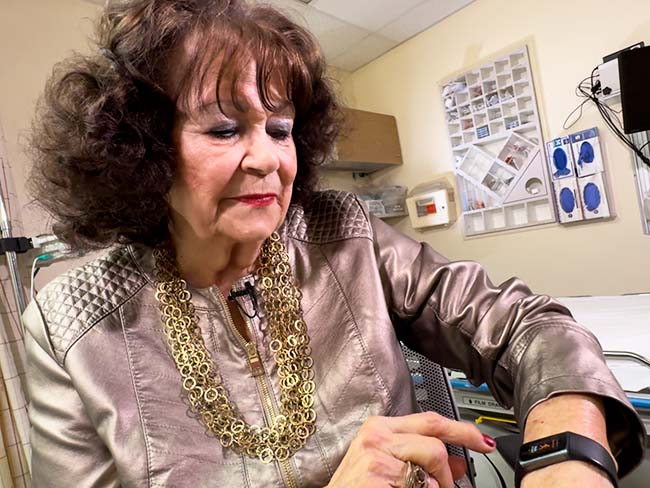
March 12, 2024
In-home recovery restores harmony to life
Colorado musician back with the band thanks to new virtual cardiac rehab …
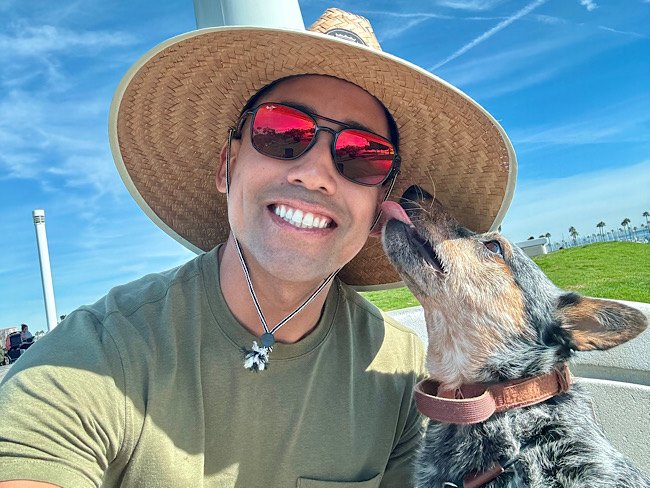
March 6, 2024
Are you dreading the spring season?
A new Kaiser Permanente facility in Bellflower, California, makes customized …

March 5, 2024
Researchers look for ways to find pancreatic cancer early
Early detection of the disease, before it becomes advanced, will increase …

February 22, 2024
The journey of a lifetime
Care teams at Kaiser Permanente Fontana Medical Center helped Phillip Crawford …

February 21, 2024
From planning his funeral to celebrating his wedding
Gabriel Abarca had no hope for his future. Then the team at Kaiser Permanente …

February 21, 2024
Recovering at home after a double mastectomy
Innovative surgical recovery program helps breast cancer patients safely …

January 26, 2024
Retiree back in the swing of things after heart procedure
Tookie Gentilcore returns to enjoying life thanks to a quick, safe method …

January 17, 2024
How diabetes can affect your heart
People with diabetes are more likely to have heart disease.

January 10, 2024
‘You don’t know unless you ask them’
Kaiser Permanente’s Patient Advisory Councils help us create exceptional …

December 19, 2023
Determined to drop the weight and stop the cycle of diabetes
Following a COVID-19-related hospital stay, Robert DeLeon took charge of …
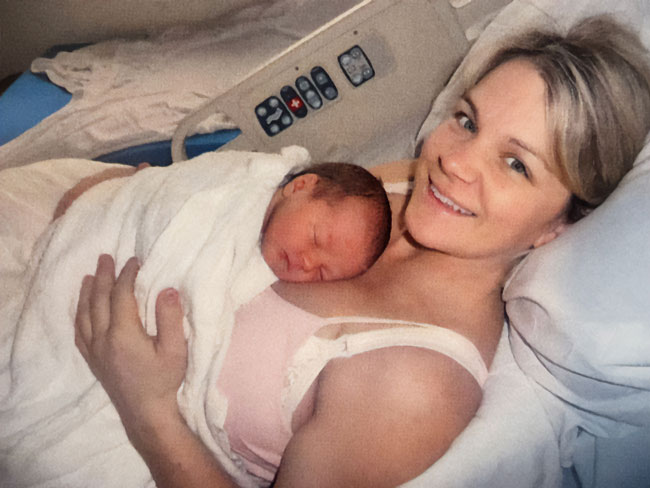
December 15, 2023
Family-centered care, through pregnancy and beyond
Members experiencing a low risk pregnancy have the option of having their …

December 6, 2023
Video prenatal visits are a boon for a busy working mom
A new care option offers a mix of in-person and virtual visits, supported …

December 1, 2023
Surviving — and thriving — after cancer
From diagnosis to recovery, David Parsons, MD, shares how screening, treatment, …
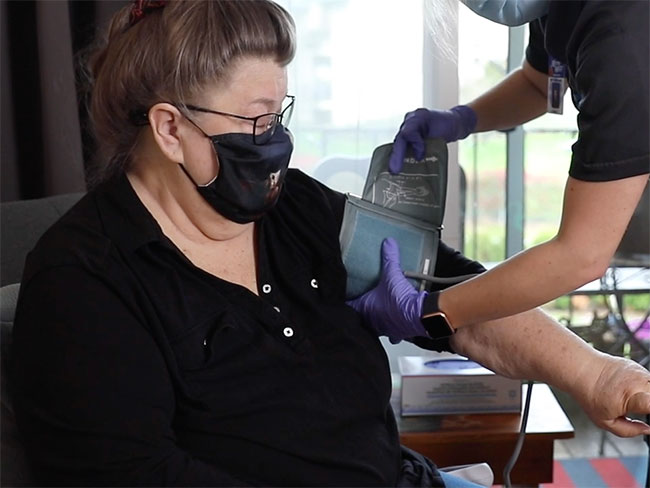
November 15, 2023
Care at home: Giving patients what they want
Our Advanced Care at Home program provides high-quality, safe care in familiar, …

October 25, 2023
Breast cancer during pregnancy: Caring for mom and baby
A team of specialists treats an expecting mother’s cancer while keeping …

October 24, 2023
Childhood anxiety: What parents need to know
A child and adolescent psychiatrist shares tips on supporting your child …

October 23, 2023
A renewed sense of purpose after surviving breast cancer
Joy Short, a Kaiser Permanente member and employee, turned her breast cancer …

October 3, 2023
Nursing excellence recognized at Fontana Medical Center
The prestigious Magnet® designation affirms the compassion, dedication, …

September 20, 2023
Healing after a heart attack
For years, serious heart attacks meant hours of weekly appointments. Now, …

September 19, 2023
Is telehealth right for you?
Members give video visits high marks — and with a few simple tips, you …
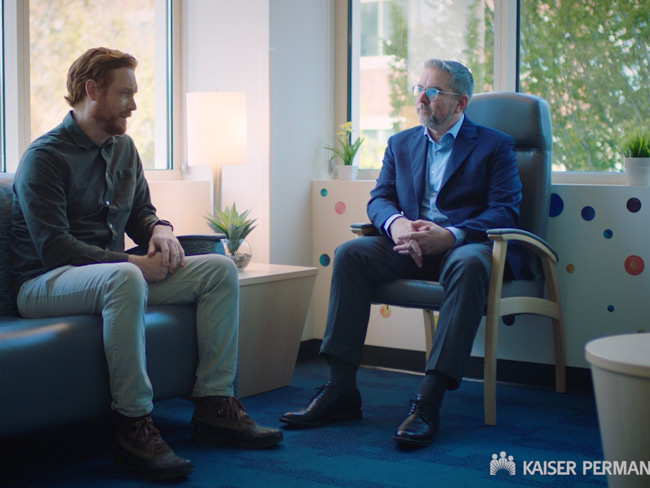
September 6, 2023
Recovery from addiction is possible
Our clinicians help patients get the care they need to move forward with …

August 17, 2023
Cancer research: The role of immunotherapy
Research and clinical trials play a vital role in advancing cancer treatment …

August 16, 2023
Cervical cancer screening: Exploring the at-home HPV test
Kaiser Permanente is at the forefront of cervical cancer research. Find …

August 14, 2023
Marla’s story: Surviving acute promyelocytic leukemia
After a diagnosis for a rare type of blood cancer, Marla Marriott got high-quali …

August 10, 2023
Highlighting our community health work in Southern California
The Kaiser Permanente Southern California 2022 Community Health Snapshot …

August 4, 2023
Eating well and adopting healthy habits helps prevent cancer
Learn how lifestyle medicine is part of cancer care at Kaiser Permanente.
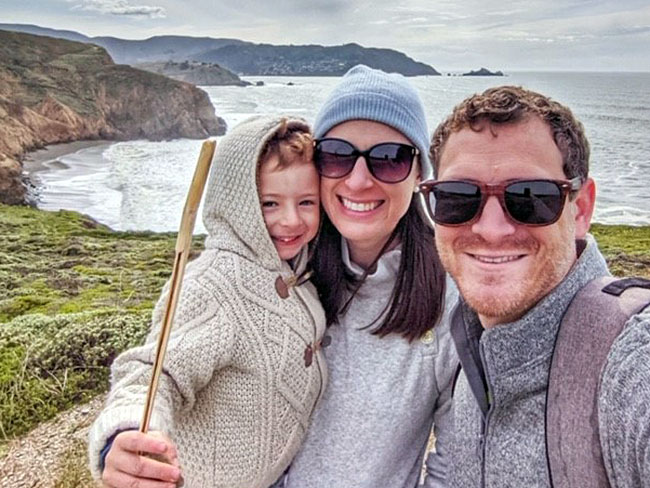
July 27, 2023
Courageously facing hereditary breast cancer
Fay Gordon's breast cancer was caught in the early stages thanks to genetic …

July 25, 2023
5 breastfeeding myths debunked
Tarayn Fairlie, MD, a pediatrician and lactation consultant, helps separate …

July 21, 2023
Thankful for every day after HPV-related cancer diagnosis
Michael West shares his incredible journey from diagnosis to treatment …

July 11, 2023
We deliver excellence for parents and babies
Our members are more likely to feed their babies breast milk. And they’re …

July 3, 2023
A compassionate approach is saving lives and rebuilding hope
Kaiser Permanente Los Angeles Medical Center’s Bridge Program has become …

June 30, 2023
Men's mental well-being is a priority
Unique challenges and societal pressures can impact men’s emotional well-being.

June 30, 2023
Doctors' top tips to manage prostate cancer risk factors
Regardless of your age, race, or family history, you can take steps to …

June 30, 2023
Lung cancer survivor received ‘pioneering’ care
Doctor and mother of 3 Susan Brim received top-notch care after her lung …

June 27, 2023
Men: It’s time to prioritize preventive care
It’s important to be proactive about your health by scheduling regular …
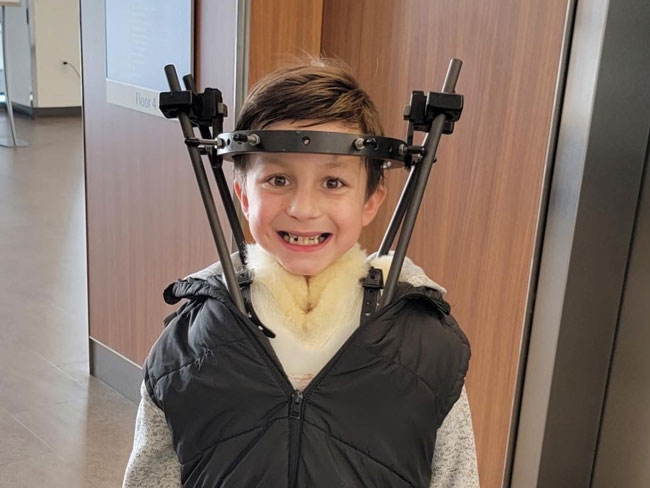
June 27, 2023
Comforting, personalized care for a kiddo with cancer
Carter Shaver from Portland, Oregon, shares his optimistic smile after …
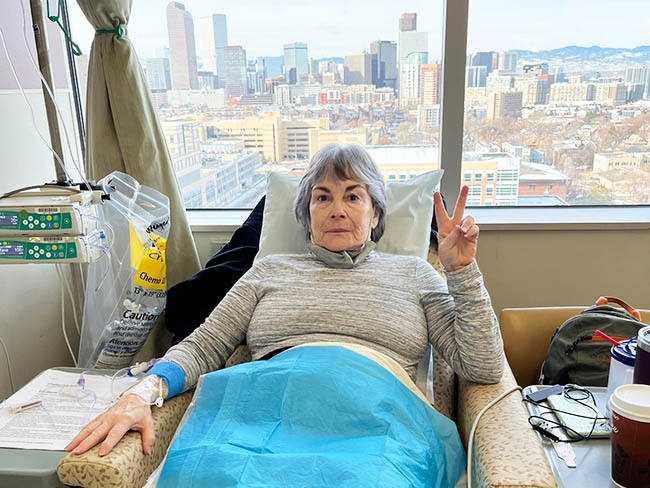
June 22, 2023
Employee joined Connect study after bloodwork results
Help change the future of cancer prevention by joining Connect today.

June 14, 2023
Living with stage 4 breast cancer
Thanks to personalized care from a team of skilled doctors, Christina McAmis …
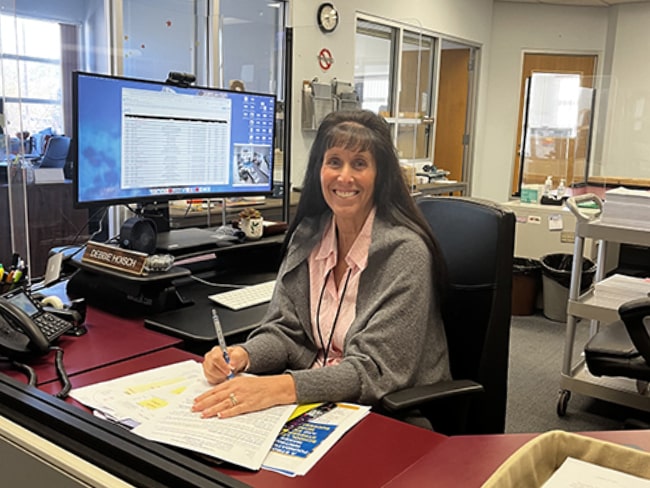
June 2, 2023
Worth knowing the warning signs
Kaiser Permanente member Debbie Hoisch encourages people to know the warning …

May 30, 2023
The healing power of shared cancer experience
Peer mentoring program matches new cancer patients with others who’ve gone …

May 18, 2023
The gold standard of nursing excellence
Kaiser Permanente Baldwin Park Medical Center achieves Magnet status, the …
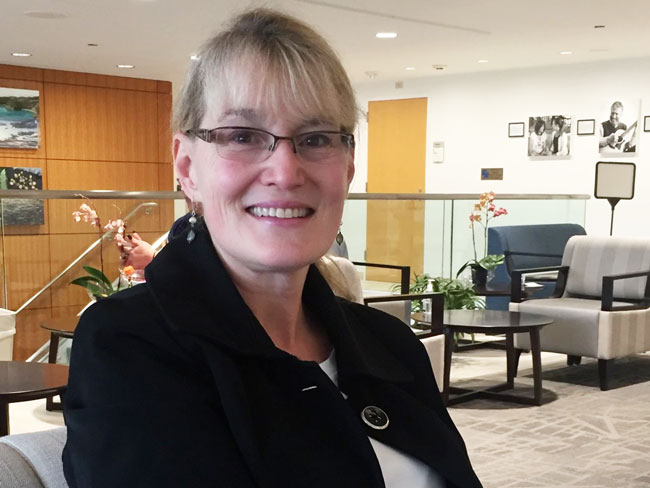
May 4, 2023
An unexpected cancer diagnosis
As a nonsmoker, Betty Schuldt’s stage 4 lung cancer diagnosis was surprising, …

May 2, 2023
Hawaii hospital named one of America’s best stroke centers
Kaiser Permanente Moanalua Medical Center recognized by the Women’s Choice …

April 7, 2023
Virtual care helps ease physical pain
Kaiser Permanente offers many high-quality, convenient options to help …
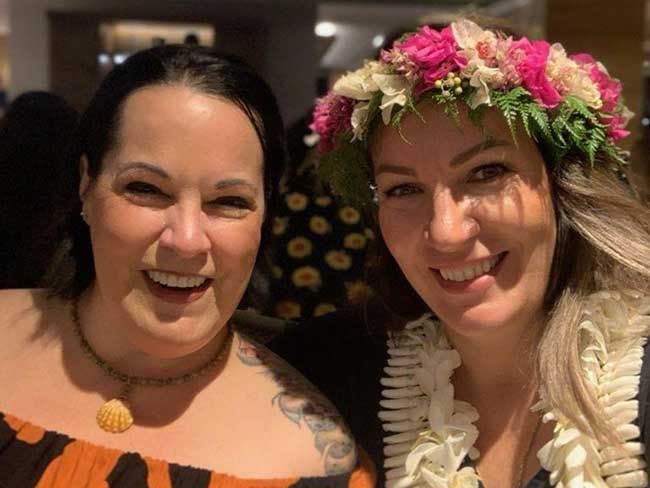
March 24, 2023
Finding hope after a mental health and addiction crisis
Treatment for bipolar disorder and opiate addiction helps a Kaiser Permanente …

March 14, 2023
Colorectal cancer on the rise among younger adults
Learn why early screening is crucial for prevention and treatment.

March 6, 2023
Living with long COVID
From avid snowboarder to chronically ill patient. How Kaiser Permanente …

March 1, 2023
‘I am so grateful for life’
After a traumatic boating accident, Gabriela Curiel was airlifted to the …

February 28, 2023
What you need to know about COPD
Almost 16 million people in the United States have chronic obstructive …
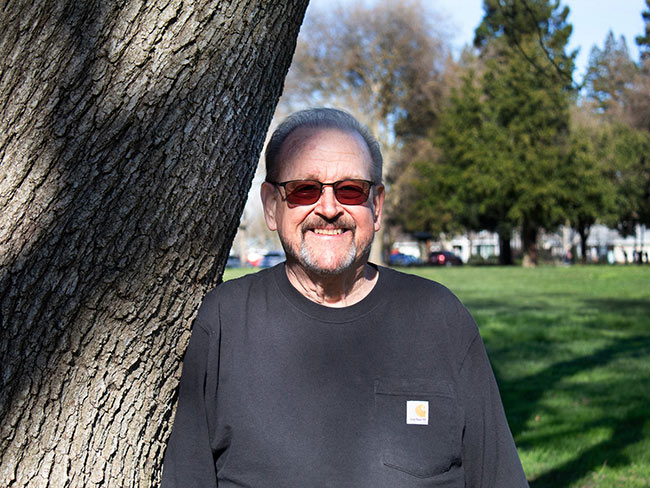
February 15, 2023
A new chapter for male patient with breast cancer
A multidisciplinary care team acted fast to help save the life of a Kaiser …